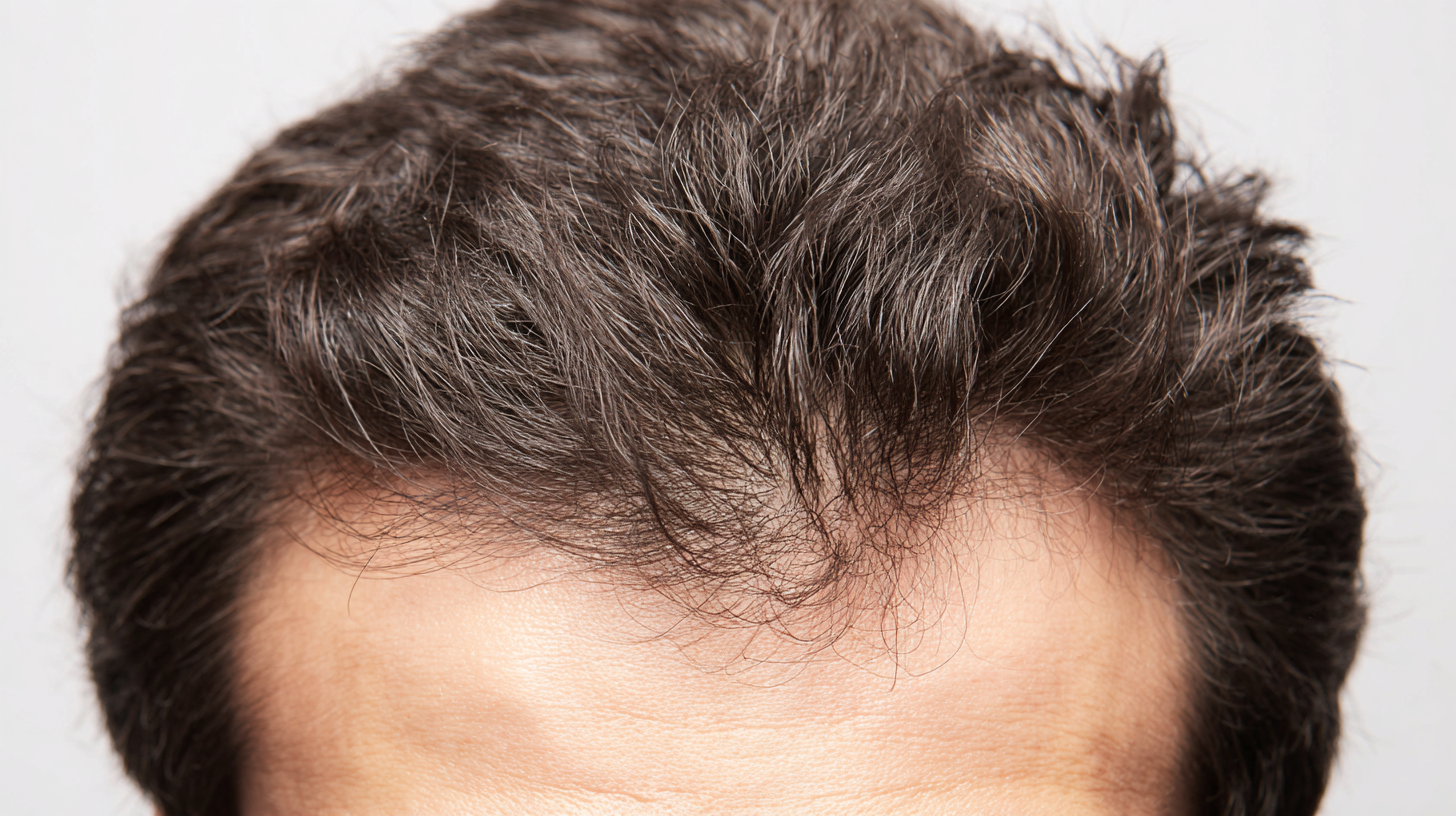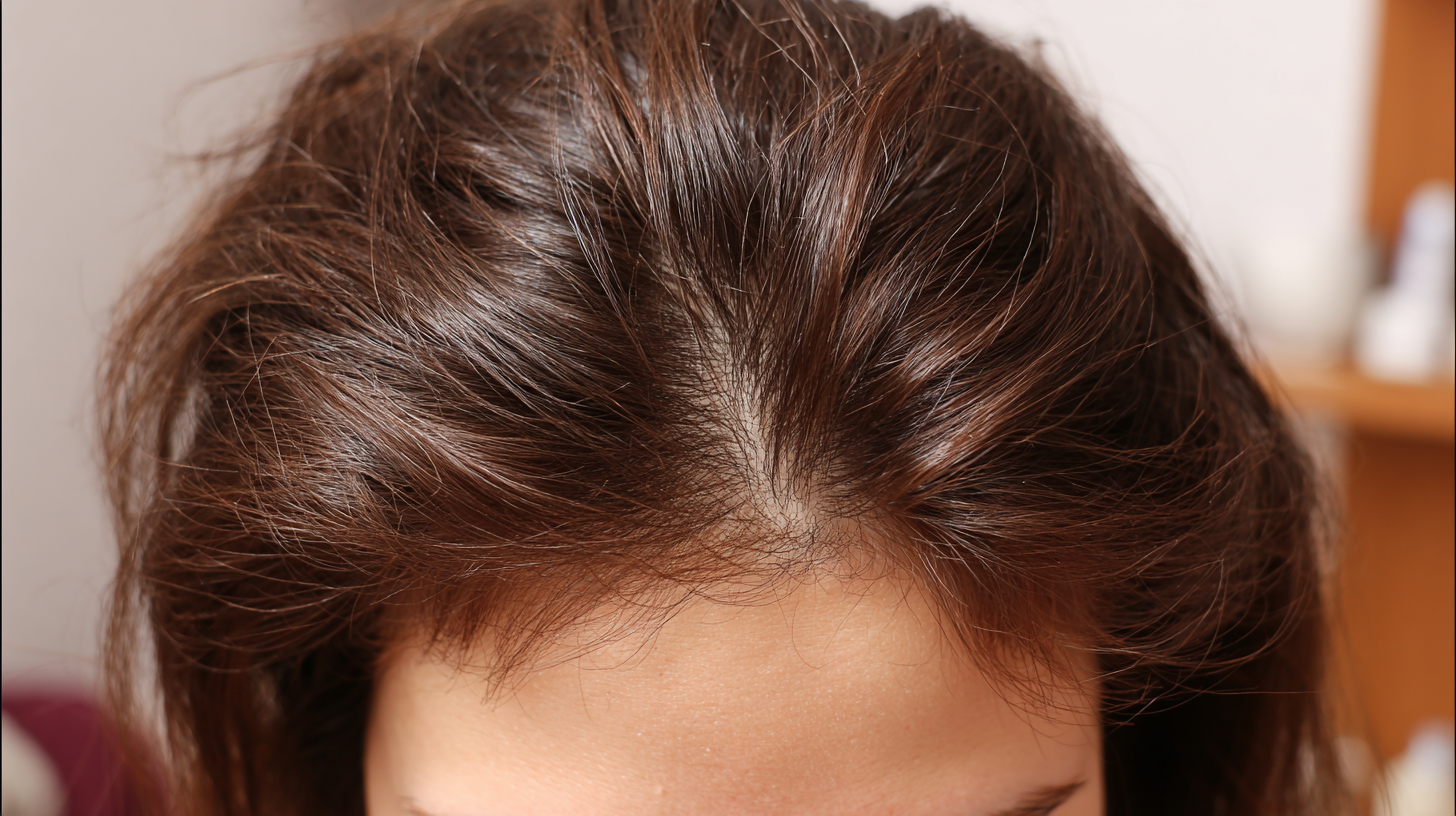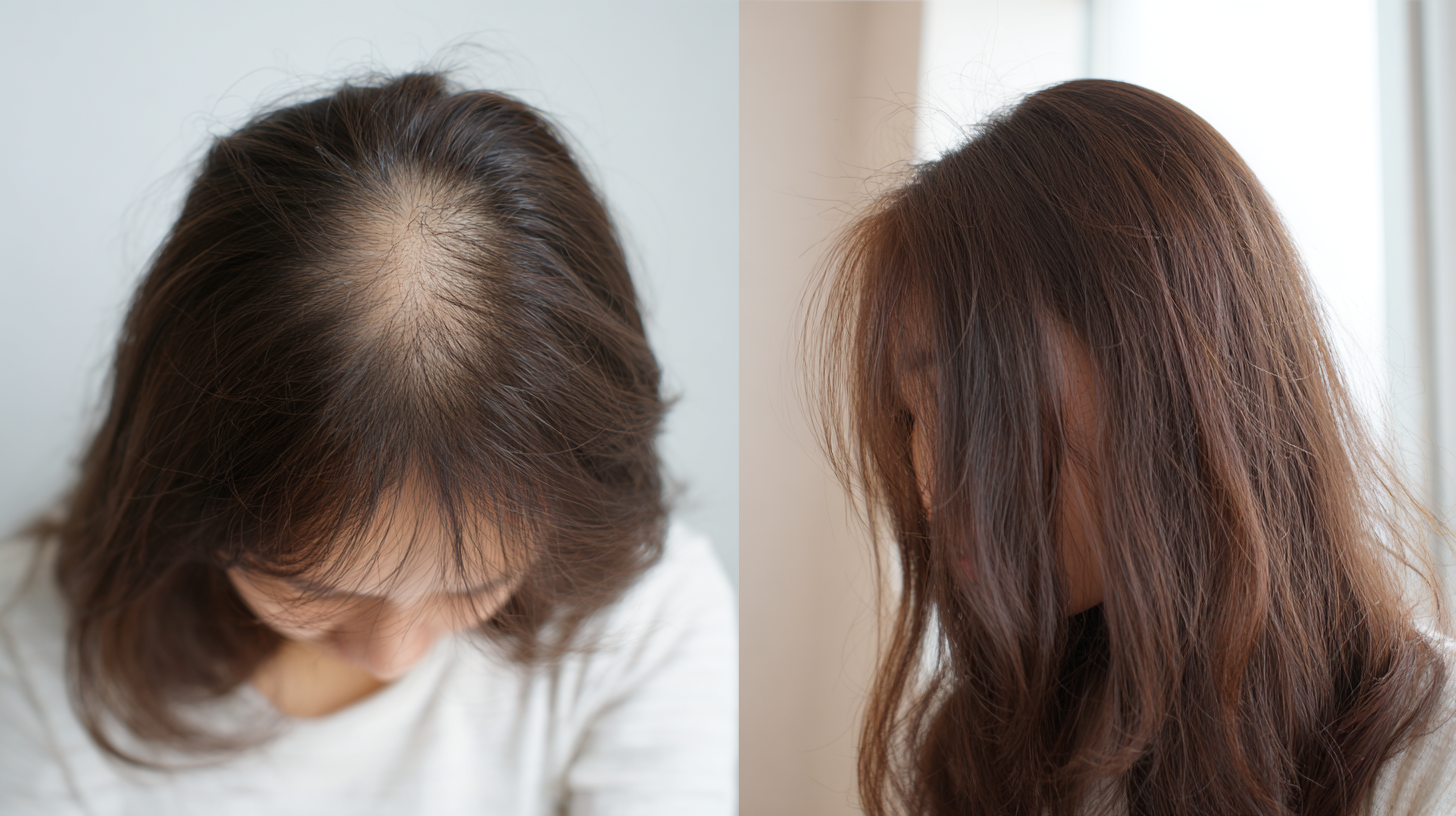
-
Home
-
Products
-
About US
-
FAQ
-
News
-
Tips
-
Contact Us
Leave Your Message
- Phone
- E-mail
- WhatsApp
- WA Business



In recent years, the pursuit of healthier hair has led many to explore various nutritional supplements, with folic acid, commonly associated with promoting cell growth, being a prominent contender in the realm of "Folic Acid Hair Growth." According to a market report by Allied Market Research, the global hair care products market is projected to reach $211.1 billion by 2024, reflecting growing consumer interest in effective hair growth solutions.

Additionally, studies, including one published in the Journal of Dermatology, have shown that deficiencies in folate can lead to hair loss, prompting many to believe that supplementation may be the key to achieving lush hair. However, while the benefits of folic acid are undeniable, emerging evidence suggests that it may not be the miraculous solution that many expect. Unpacking the complexities of hair health and the role of nutrients requires a critical approach to understanding individual needs and the biological processes involved, ensuring that consumers are not misled by oversimplified claims.
 Folic acid, also known as vitamin B9, is often touted as a miracle worker for hair growth, leading many to believe that supplementing with it will yield luscious locks. However, the scientific evidence supporting this claim is mixed. While folic acid plays a crucial role in DNA synthesis and repair, which are vital processes in hair follicle function, there is a lack of concrete research demonstrating its direct impact on hair growth. Most studies emphasize the benefits of folic acid for overall health rather than specifically for stimulating hair growth.
Folic acid, also known as vitamin B9, is often touted as a miracle worker for hair growth, leading many to believe that supplementing with it will yield luscious locks. However, the scientific evidence supporting this claim is mixed. While folic acid plays a crucial role in DNA synthesis and repair, which are vital processes in hair follicle function, there is a lack of concrete research demonstrating its direct impact on hair growth. Most studies emphasize the benefits of folic acid for overall health rather than specifically for stimulating hair growth.
Moreover, some common myths surrounding folic acid can further cloud our understanding. It is frequently misconceived that simply increasing folic acid intake can counteract hair loss caused by genetic factors or hormonal imbalances. In reality, hair loss can be a complex issue influenced by a myriad of factors including genetics, stress, and health conditions. While ensuring adequate levels of folic acid in your diet is important for overall health, relying solely on it as a solution for hair loss might lead to disappointment. Understanding the science behind this vitamin can help in making informed decisions rather than following trends based on misconceptions.
 While folic acid is often heralded as a key vitamin for promoting hair growth, excessive intake can lead to potential side effects that may compromise overall hair health. According to a study published in the "Journal of Dermatological Science." High levels of folic acid have been correlated with increased risk of skin issues, such as rashes and excessive oiliness, which can affect scalp health. The body's ability to metabolize high doses of this vitamin can also lead to imbalances in other vital nutrients, potentially hindering the very hair growth one aims to achieve.
While folic acid is often heralded as a key vitamin for promoting hair growth, excessive intake can lead to potential side effects that may compromise overall hair health. According to a study published in the "Journal of Dermatological Science." High levels of folic acid have been correlated with increased risk of skin issues, such as rashes and excessive oiliness, which can affect scalp health. The body's ability to metabolize high doses of this vitamin can also lead to imbalances in other vital nutrients, potentially hindering the very hair growth one aims to achieve.
Tip: It’s crucial to balance your intake of folic acid with other B vitamins, as they all play a role in cellular function and hair growth. Opt for a well-rounded diet rich in fruits, vegetables, whole grains, and lean proteins, which provide a natural source of folic acid without the risks associated with supplements.
Moreover, a report from the American Academy of Dermatology notes that hair growth can be influenced more by genetic factors and overall health rather than isolated supplementation of folic acid. Over-supplementing may mask deficiencies in other nutrients like iron or zinc, which are equally essential for maintaining healthy hair.
Tip: Before starting any supplementation, consult with a healthcare professional to tailor your nutrient intake to your specific needs, ensuring a balanced approach to hair health.
Folic acid is often hailed as a miracle nutrient for hair growth, but its effectiveness may be overstated when considered in the context of overall nutritional balance. While folic acid plays a crucial role in DNA synthesis and cell division—which are essential for healthy hair follicles—merely supplementing it without considering a well-rounded diet may not yield the desired results. According to the Journal of Dermatological Science, hair growth is influenced by a myriad of vitamins and minerals, including biotin, zinc, and vitamins D and E, which together create an environment conducive to hair vitality.
Recent studies indicate that deficiencies in multiple nutrients, rather than a single lack of folic acid, are often linked to hair loss. For instance, a report by the International Journal of Trichology shows that 38% of participants with hair thinning had significant deficiencies in iron and vitamin D, alongside folic acid. This suggests that an isolated focus on folic acid supplementation can lead individuals to overlook the importance of a diverse nutritional intake. Therefore, to effectively support hair growth, it is essential to adopt a holistic approach that includes various nutrients rather than relying solely on one component of the nutritional spectrum.
While folic acid is often touted as a key player in promoting hair growth, it may not be the miraculous solution many believe it to be. Recent studies indicate that hair loss can be attributed to a range of deficiencies, including vitamin D, biotin, and iron, which hints at a more complex underlying issue. A systematic review revealed that while various supplements hold potential for hair regrowth, the efficacy of these products requires further investigation to establish concrete results.
Exploring alternative solutions beyond folic acid can lead to more effective outcomes. Natural remedies such as essential oils or a balanced diet rich in vitamins can also contribute positively to hair health. Moreover, innovative treatments, including recent breakthroughs like a sugar gel that has shown effectiveness comparable to traditional medications, open new avenues for individuals seeking to combat thinning hair. Such advancements emphasize the importance of a broader approach, focusing on overall nutrition and innovative treatments rather than relying solely on a single nutrient like folic acid.
This chart compares the effectiveness scores of various nutrients commonly associated with hair growth. While folic acid has some benefits, other nutrients such as biotin and vitamin D show higher scores, indicating they may be more impactful alternatives for hair loss solutions.
Folic acid, often hailed as a miracle worker for hair growth, has become a popular choice among those struggling with hair loss. However, personal journeys reveal a more complex picture. While some individuals report improvements after incorporating folic acid into their routine, others find little to no change. A study published in the *Journal of Dermatology* indicated that though folic acid plays a crucial role in cell division and growth, its direct impact on hair regrowth is still inconclusive, with only 12% of participants experiencing significant hair improvement.
For those considering folic acid for hair health, here are a few key tips. First, consult with a healthcare professional to determine the appropriate dosage tailored to your needs. Excessive intake won’t guarantee faster results and can lead to unwanted side effects. Secondly, consider coupling folic acid with other hair vitamins such as biotin and vitamin D, which, according to the *American Journal of Clinical Nutrition*, have shown promising correlations with hair health. Lastly, remember that a balanced diet rich in leafy greens, legumes, and fortified grains can naturally boost your folate levels, providing a holistic approach to hair regrowth.
| User | Experience | Results | Duration of Use |
|---|---|---|---|
| User A | Started taking folic acid to combat thinning hair. | Noticed minimal improvement after 6 months. | 6 months |
| User B | Used folic acid along with other vitamins and saw some hair regrowth. | Good results, but uncertain which supplement was most effective. | 4 months |
| User C | Didn't see any noticeable changes after taking folic acid alone. | No results; stopped after 3 months. | 3 months |
| User D | Mixed results; experienced some regrowth but also side effects. | Moderate improvement but stopped due to side effects. | 5 months |
| User E | Combined folic acid with a balanced diet; better results. | Significant improvement over 8 months. | 8 months |